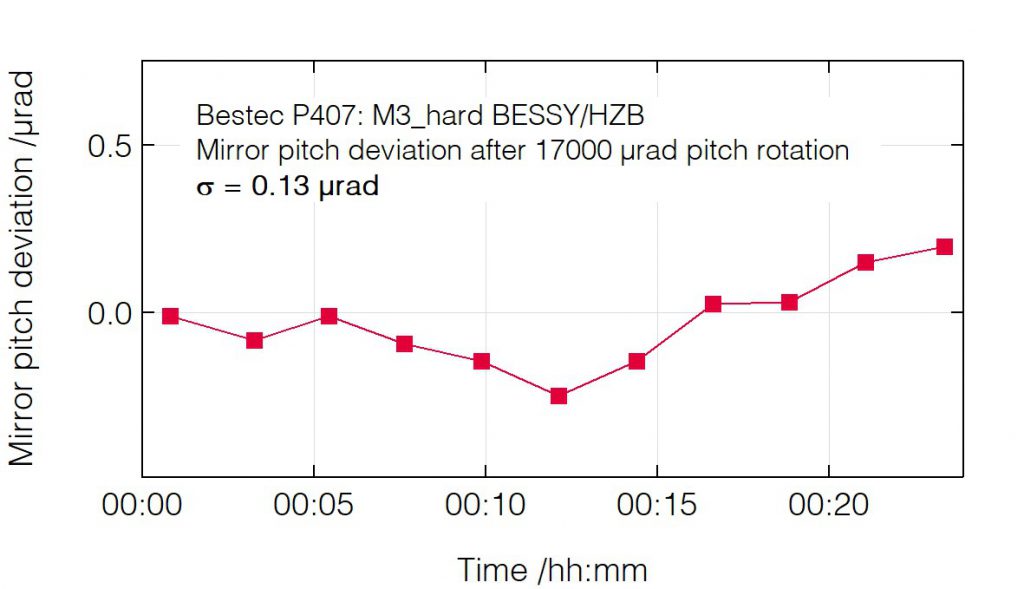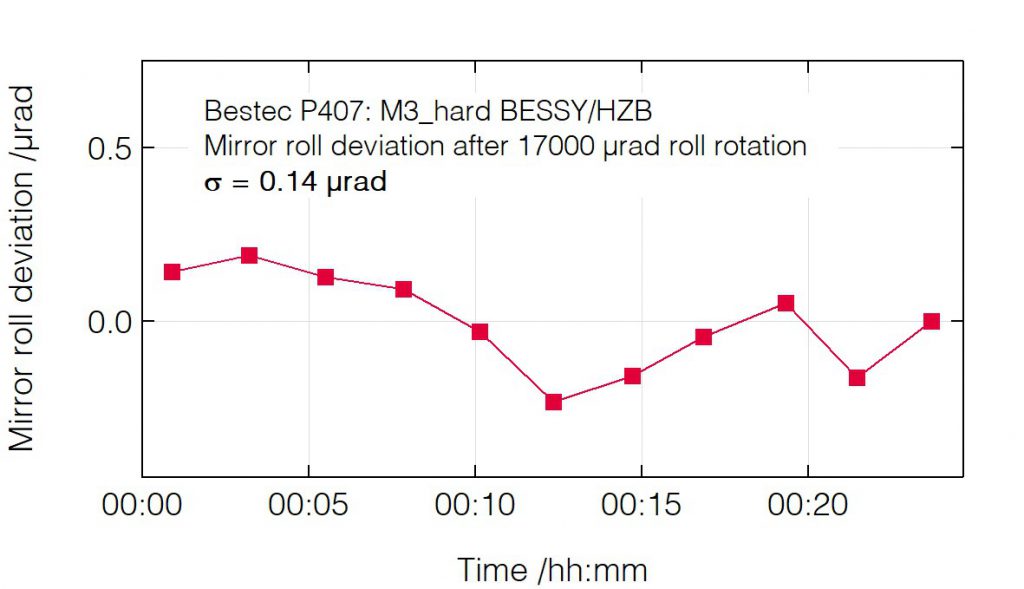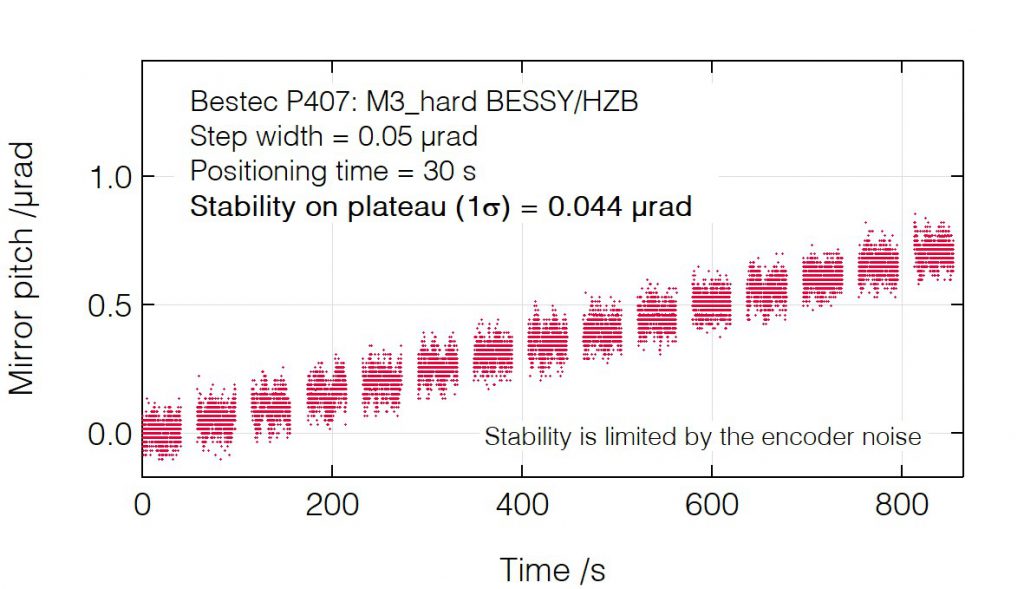
P407 – Mirror Unit M3_hard EMIL BESSY
Application
Mirror unit (M3) for hard X-ray synchrotron radiation
Year of delivery
2015
Installation site
EMIL hard X-ray beamline at BESSY, Helmholtz-Zentrum Berlin, Germany
This hard X-ray split mirror unit is part of the combined hard and soft X-ray EMIL beamlines at BESSY. It features an optimized design of the constant-strut-length hexapod mechanism used for the first Bestec hexapod (see project P377). The mirror splitting is realized by a vertical movement. The vacuum chamber accomodates not only the actual beam but also the passing soft X-ray and pink beams of the neighbouring branches.
Design Features
-
Constant-strut-length hexapod mechanism.
- Six degrees of freedom and selectable rotation center.
- Spectral range: 2 – 10 keV.
- Optical elements: two focusing mirrors (for soft and for hard X-ray radiation).
- Electrodes at mirrors surfaces for carbon contamination prevention.
-
Provisions for RF oxygen plasma cleaning of the optical surfaces.
- Four motorized OFHC aperture blades at the entrance flange.
- Permanently installed bakeout provisions.
- Adjustable support structure.
Performance Features
- High positioning resolution (minimum incremental motion).
- High stability and repeatability for all degrees of freedom.
- Minimized mounting induced deformations.
Outer Dimensions
Technical specifications and performance values
General
Vacuum chamber
Chamber type
cylindrical, vertical axis
Main flanges
at the top
Material
1.4404 (C < 0.02%)
Base pressure
10-10 mbar range
Optical design parameters
Beam height
1420 mm
Number of mirrors
2
Surface shape
cylindrical
Mirror dimensions
520 x 40(25) x 40(8) mm3
(T-Profile)
Actuator drives for hexapod axes
Resolution (design value)
0.004 µm /motor fine step
(1/128, recommended)
0.005 µm /encoder count
Mirror mechanics
Pitch rotation
Range
-10 mrad to +12 mrad
Resolution (measured value)
0.05 µrad
Repeatability
0.13 µrad (pitch)
0.22 µrad (roll)
Roll rotation
Range
± 10 mrad
Resolution
0.05 µrad
Repeatability
0.07 µrad (pitch)
0.14 µrad (roll)
Yaw rotation
Range
± 8 mrad
Resolution
0.05 µrad
Vertical translation (switch)
Range
± 15 mm
Horizontal translation
Range
± 5 mm
Aperture unit
Blades
Material
OFHC
Stroke
25 mm, 50 mm
Resolution (design value)
10 µm /motor step
(full step at actuator)
0.11 µm /motor fine step at blade
(1/64, recommended)







